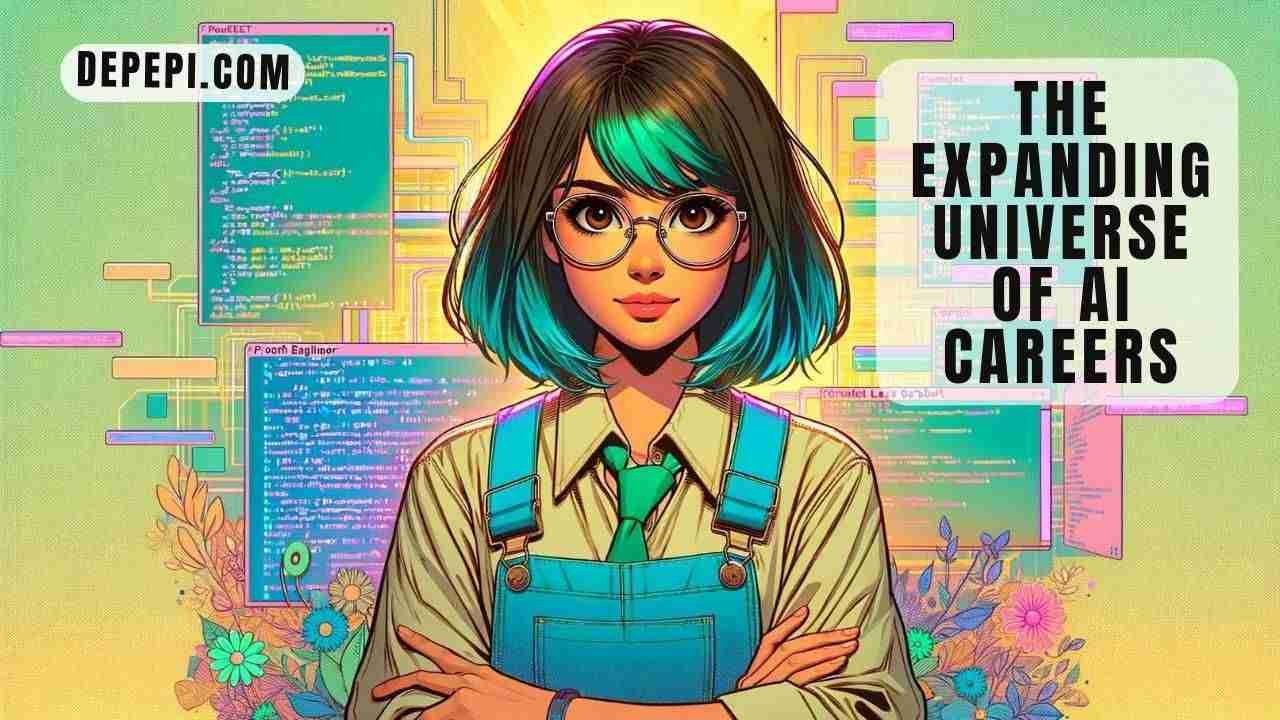The Expanding Universe of AI Careers

New AI careers are emerging, transforming traditional employment and creating opportunities in unexpected ways. AI is not just reshaping how we approach tasks; it’s spawning a new generation of job roles, particularly in sectors that have traditionally relied heavily on human intervention.
New AI Careers
The term “AI competency leader” has recently popped up in job ads. It shows jobs requiring teamwork across different groups to use AI in many areas. This shows a shift from the conventional job roles we’ve been accustomed to. Now, it’s not just about having development or data science skills. Integrating AI into business strategies requires new responsibilities, from training algorithms to managing ethical concerns.
There are two levels of AI-related positions that are emerging. The first involves AI specialists with broad training in machine learning, neural networks, and more. The second, more intriguing category is “AI plus something”. For example, “AI in law”, “AI in medicine”, or “AI in hiring”. These positions are more abundant and demand a combination of core expertise and AI implementation skills.
The Rise of Prompt Engineering
Prompt engineering is among the new positions making headlines. It’s now a hot job. However, its longevity as a career path remains uncertain. While it’s currently in demand, its future depends on how AI interfaces evolve. Other prospective roles include AI trainers, auditors, and ethicists, focusing on ensuring the ethical use of AI and maintaining data integrity.
The transformation doesn’t stop there. According to experts, AI is taking over many lower-level tasks in IT development and management, a trend that should be welcomed. These include coding, updating legacy code, and implementing SDKs. These were previously considered tedious and time-consuming tasks.
Disappearing Jobs
We can see a tangible example of AI’s impact with Klarna. This payment processing firm introduced an AI assistant capable of handling customer issues around the clock in over 35 languages. This AI assistant managed to handle 2.3 million conversations, equivalent to the workload of 700 full-time human agents. The results? Issues were resolved seven times faster, repeat inquiries dropped by 25%, and customer satisfaction remained stable.
AI Literacy
As AI continues to advance, it’s crucial for professionals to adapt and evolve. Mathematics and computer science skills remain foundational, but soft skills like communication, empathy, and creativity are becoming increasingly valuable. Professionals need to understand the fundamentals of AI, including machine learning and natural language processing, regardless of their technical background.
In these changing times, adaptability is key. Staying current with AI developments through a well-curated social media feed and focusing on hard and soft skills can help professionals successfully navigate the AI revolution.
Worried About Losing Your Job?
Pre-order “You Lost Your Job. Now What? Surviving the AI Shift” and bulletproof your résumé. It offers a comprehensive guide to learning prompting and practical advice on enhancing your CV to secure a competitive edge in the job market.
Can’t wait? Join AI Prompting for Job Hunters & Job Seekers (ChatGPT Prompt Course).






